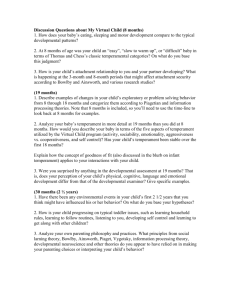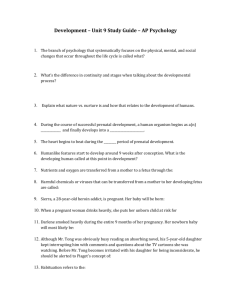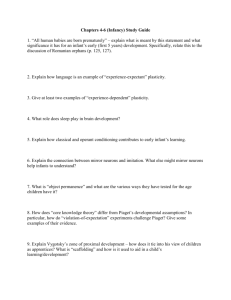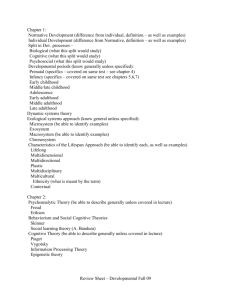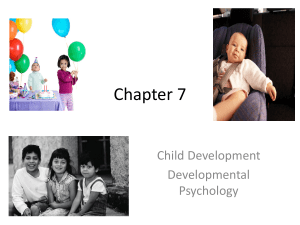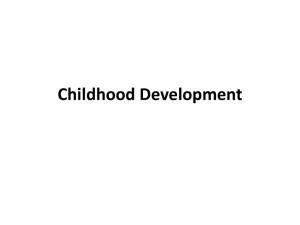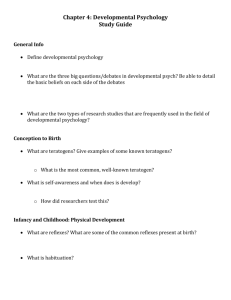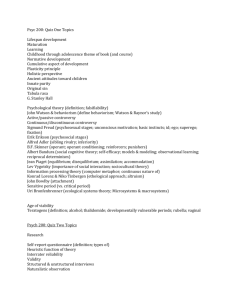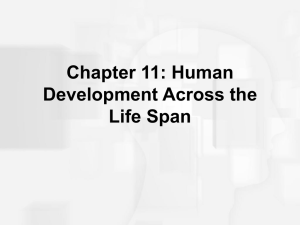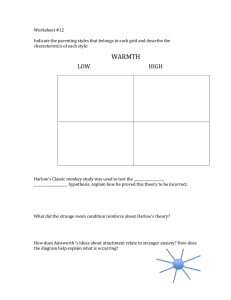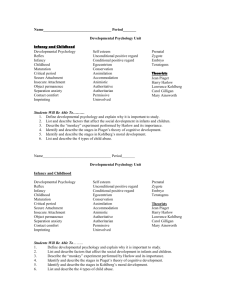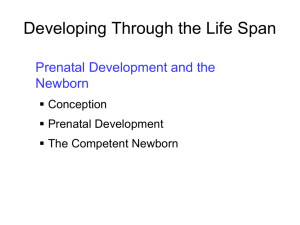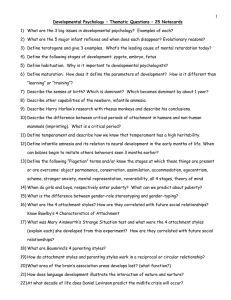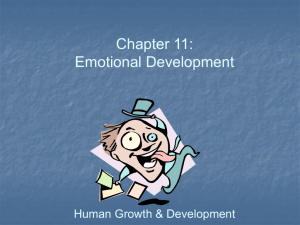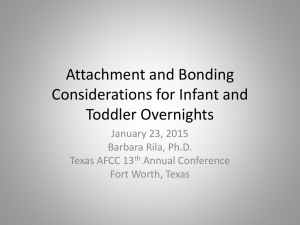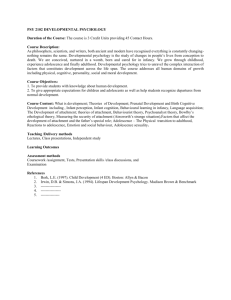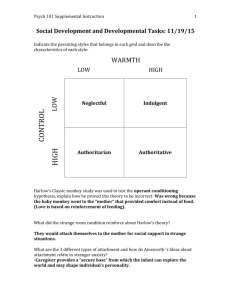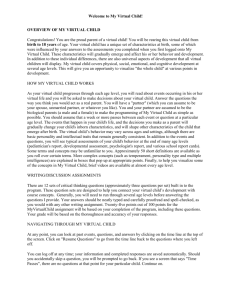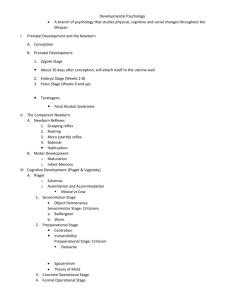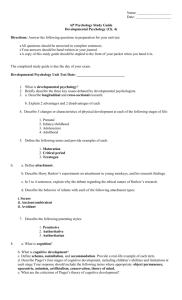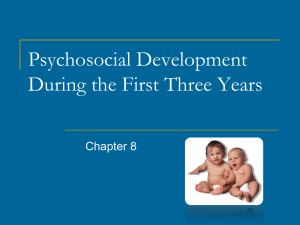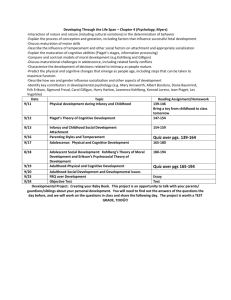Mods. 45-48
advertisement
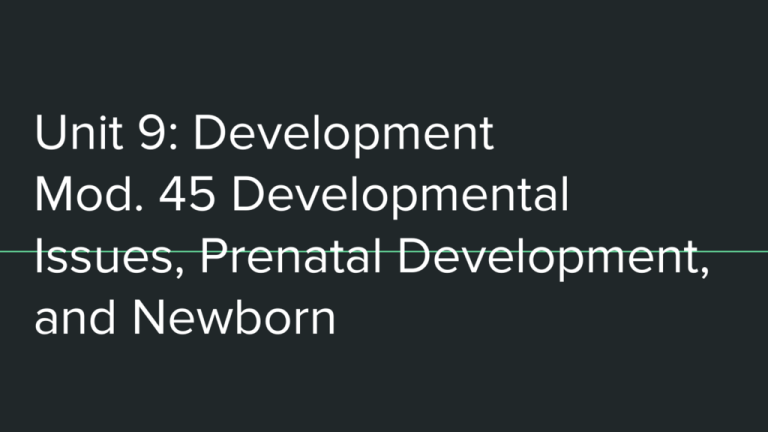
Unit 9: Development Mod. 45 Developmental Issues, Prenatal Development, and Newborn 45.1 Developmental Psychology’s Major Issues Developmental Psych: studies people from conception until death. Focus on changes in body, thinking, and socialization 3 Major Issues 1. Nature v. Nurture: We are an interaction of both 2. Continuity and Stages a. nature standpoint sees growth as changes (Piaget, Kohlberg, Erikson) b. nurture sees growth as continuous development 3. Stability and Change a. stability: our temperament is very stable 45.2 Prenatal Development and Newborn Conception: Zygote→ Embryo→ Fetus ● affected by genetics and environment ● teratogens: chemicals and viruses that can reach embryo/fetus and cause harm ○ fetal alcohol syndrome (FAS) ○ epigenetics: alcohol effects on the fetus can determine if genes are expressed 45.3 The Competent Newborn ● reflexes when born...rooting, sucking ● difficult to test newborns so we use habituation ○ responses decrease as become used to a stimulus Mod. 46 Infancy and Childhood: Physical Development 46.1 Maturation: biological growth that proceeds in orderly changes (nature) ● experience itself has very little effect ● can be affected by severe abuse or deprivation Brain Development ● born with all the cells you will have but the brain is immature ○ neural networks of axons/dendrites grow or pruned down for efficiency ● 3-6yrs: frontal lobe has the most growth for planning ● association areas (thinking, memory, and language) last to develop Motor Development ● physical coordination grows in conjunction with brain development 46.2 Brain Maturation and Infant Memories ● infantile amnesia: inability to recall memories before the age of 4-5 ○ likely due to the lack of language and underdeveloped hippocampus Mod. 47: Infancy and Childhood-Cognitive Development 47.1 How does a child’s mind develop? Cognitive Development: all the mental activities associated with thinking, knowing, remembering, and communication ● Piaget→ believed in stages ● cognition rooted in understanding our environment ○ accomplished through schemas ■ adjusted through assimilation and accommodation Piaget’s Theory 1. Sensorimotor Stage: 0-2 years, lack object permanence 2. Preoperational Stage: 2-6/7 years, has language but lacks mental operations and conservation ● modern thought: language and symbolic thinking happens earlier ● egocentrism ● Theory of Mind 3. Concrete-Operational Stage: 6-11 years, can perform mental operations and can understand concrete events 4. Formal-Operational Stage: 12+ years, can think abstractly ● modern thought: thinking occurs gradually and earlier Alternative Viewpoint-Lev Vygotsky: Scaffolding ● Russian psychologist ● emphasized use of language in thinking ○ inner speech can help us gain “control” of our behavior ● learn by interacting with others ○ language is a building block, scaffold! 48 Infancy/Childhood Social Development 48.1 Origins of Attachment ● Attachment: strong tie/bond with one another ○ Harlow’s research ● Familiarity ○ ○ critical period imprinting 48.2 Attachment Differences: Temperament and Parenting Mary Ainsworth...Strange Situation Test ● observed infant at their homes to see how they react when mom leaves the room and then in “strange” lab ○ ○ secure attachment insecure attachment ● Is this due to temperament or parenting? ○ temperament: emotional reactions and the intensity of reactions (nature!) ■ difficult, easy Parenting Styles 1. Authoritarian: impose rules and expect obedience 2. Permissive: cave in to children’s desires, little to no demands from parents 3. Authoritative: demanding BUT responsive; set/enforce rules BUT explain why; encourage discussion with kids
